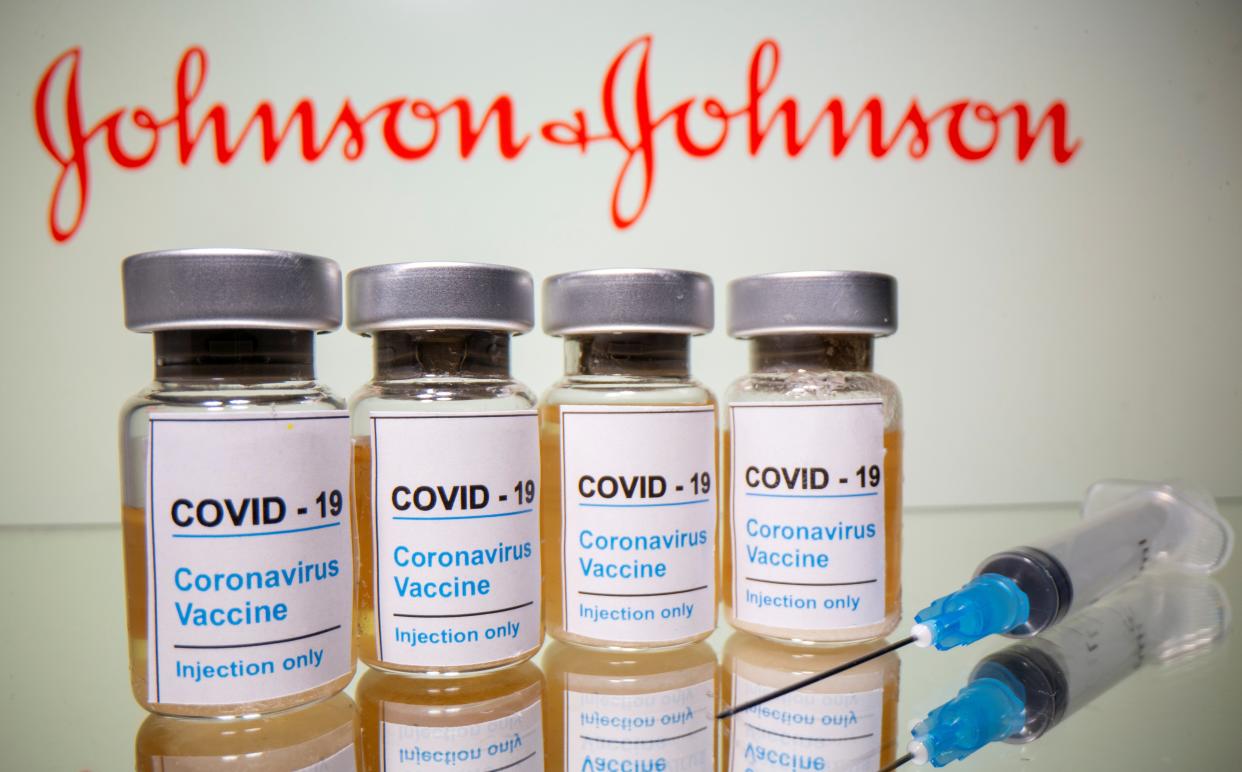J&J vaccine news: Pfizer can deliver 10% more shots amid concern ‘blood clot’ pause could impact rollout

The Johnson & Johnson vaccine is under scrutiny by US authorities
(Reuters)The US Food and Drug Administration has recommended pausing use of the single-shot Johnson & Johnson coronavirus vaccine, which has already been administered to some 7 million Americans, following six cases of blood clots.
Six women aged between 16 and 48 suffered serious blood clots after having the jab, and one later died.
The announcement only affected federal vaccination sites, but it was expected that authorities will urge state vaccination programmes to follow their lead. The FDA and Centers for Disease Control and Prevention (CDC) would now launch a review into the six blood clot cases.
Several states have already announced they would pause use of the Johnson & Johnson vaccine following the FDA recommendation, including Arkansas, Ohio, New York, and New Jersey.
Officials expressed concern that the recommended pause could impact vaccine rollout in the United States, but Pfizer’s CEO announced on Tuesday that the company could deliver an additional 10 per cent of its promised doses by the end of May. This means the US would have access to an additional 20 million doses, the CEO said.
The White House has indicated that the country was still on track to make President Joe Biden’s goal of administering 200 million vaccines within the first 100 days in office despite the latest vaccine setback.
“The president has always said this is a wartime effort … and as such we have mobilised a wartime effort so we are prepared for a variety of scenarios,” said Jeffrey Zients, the White House Covid-19 response coordinator.
Some 16 million doses of the J&J shot have been distributed, and the White House says it will give alternative vaccines to those waiting for one. The US has administered a total of 185 million individual doses of a Covid-19 inoculation to 120 million people.

 Yahoo News
Yahoo News 
